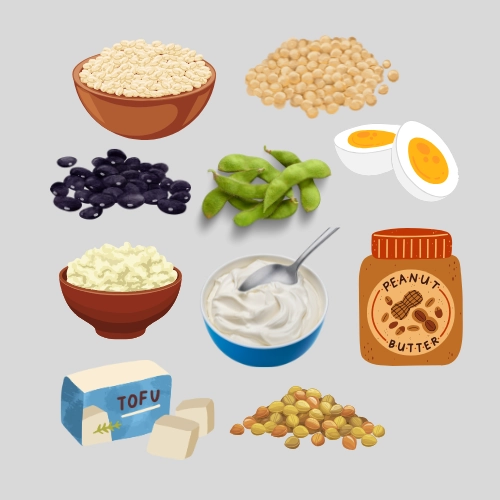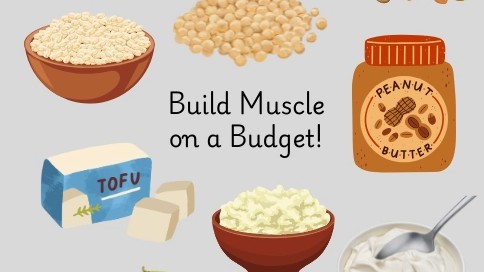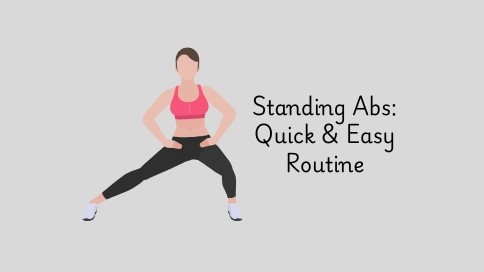Introduction
Building muscle on a vegetarian diet doesn’t have to mean spending a fortune on supplements or exotic foods. The truth is, some of the most powerful muscle-building foods are not only vegetarian but also incredibly affordable and easy to find in USA grocery stores.
Whether you’re a gym beginner or a seasoned lifter, protein is key for muscle repair, recovery, and growth. The challenge for many vegetarians is hitting daily protein targets without overspending. Luckily, by choosing smart, budget-friendly foods, you can get the protein your body needs — and still keep your wallet happy.
In this guide, we’ll explore top cheap high-protein vegetarian foods (with egg as an optional addition), explain their benefits, and show how you can incorporate them into delicious meals. Below each food, you’ll find space reserved for images to make your blog visually engaging.
1. Lentils
Protein per cup (cooked): ~18g
Average cost: $1.50–$2 per pound
Lentils are a vegetarian muscle-building staple. Packed with plant protein, fiber, iron, and magnesium, they’re a nutritional powerhouse that’s easy on the budget.
Benefits for muscle gain:
High protein density per serving
Excellent source of iron for better oxygen delivery to muscles
Keeps you fuller for longer, reducing unnecessary snacking
How to use:
Lentil soups and stews
Lentil curry with brown rice
Cold lentil salad with chopped vegetables and olive oil
2. Chickpeas (Garbanzo Beans)
Protein per cup (cooked): ~15g
Average cost: $1–$1.20 per can or $1.50 per pound dry
Chickpeas are an affordable and versatile vegetarian protein source. They also provide fiber, vitamins, and minerals to aid overall health.
Benefits for muscle gain:
Balanced amino acid profile for muscle repair
Supports steady energy release during workouts
Long shelf life for budget-friendly bulk buying
How to use:
Roast for a crunchy snack
Mash into hummus
Add to salads, soups, or curries
3. Black Beans
Protein per cup (cooked): ~15g
Average cost: $1.50–$2 per pound dry or $1 per can
Black beans are a wallet-friendly source of protein and antioxidants. Pairing them with rice creates a complete protein meal for muscle building.
Benefits for muscle gain:
Excellent source of iron and magnesium for recovery
High fiber keeps you full longer
Great for meal prepping in bulk
How to use:
Black bean burritos
Spicy black bean chili
Black bean and corn salad
4. Greek Yogurt (Unsweetened, Low-Fat)
Protein per cup: ~20g
Average cost: $4–$5 for 32oz tub
Greek yogurt is a high-protein dairy option rich in calcium and probiotics. It’s excellent for post-workout recovery and gut health.
Benefits for muscle gain:
Fast-digesting protein
High in casein for overnight recovery
Works well in both sweet and savory dishes
How to use:
Add to smoothies
Top with fruits and nuts
Use as a base for sauces and dips
5. Cottage Cheese (Low-Fat)
Protein per cup: ~25g
Average cost: $3–$4 for 16oz tub
Cottage cheese provides slow-digesting casein protein, perfect for nighttime muscle repair.
Benefits for muscle gain:
Long-lasting protein release
High calcium content for bone strength
Great snack or recipe addition
How to use:
Mix with pineapple or berries
Spread on whole grain toast
Add to omelets or pasta
6. Eggs
Protein per large egg: ~6g
Average cost: ~$3 per dozen
Eggs are one of the most bioavailable protein sources, making them a top choice for vegetarians who consume them.
Benefits for muscle gain:
Complete amino acid profile
Rich in vitamin B12 for energy metabolism
Affordable and quick to prepare
How to use:
Boiled as a snack
Scrambled with spinach
In an omelet with vegetables
7. Quinoa
Protein per cup (cooked): ~8g
Average cost: $3–$4 per pound
Quinoa is a gluten-free grain and a complete protein source — ideal for vegetarian athletes.
Benefits for muscle gain:
Complete protein for muscle repair
Contains magnesium for muscle function
Versatile in both sweet and savory dishes
How to use:
Quinoa salad with beans
Quinoa stir-fry
Breakfast quinoa with nuts and berries
8. Peanut Butter (Natural)
Protein per 2 tbsp: ~8g
Average cost: $2–$3 per jar
Peanut butter is high in protein and healthy fats — perfect for boosting calories when bulking.
Benefits for muscle gain:
Calorie-dense for weight gain
Affordable and long-lasting
Easy to add to snacks and meals
How to use:
On whole grain bread
In protein smoothies
Over oatmeal or fruit
9. Tofu
Protein per cup: ~20g
Average cost: $2–$3 per block
Tofu is a soy-based complete protein with a mild flavor that absorbs seasonings easily.
Benefits for muscle gain:
Complete amino acid profile
Affordable plant protein
Works in countless recipes
How to use:
Stir-fry with vegetables
Grilled with seasoning
Added to soups and curries
10. Edamame
Protein per cup: ~17g
Average cost: $2–$3 per frozen bag
Edamame is a quick, nutritious snack packed with complete protein and fiber.
Benefits for muscle gain:
Fast preparation
Rich in antioxidants
Great as a snack or salad topping
How to use:
Steam with sea salt
Mix into salads
Add to rice bowls

Budget-Friendly Tips for Maximizing Protein
Buy in bulk — Lentils, beans, and oats are much cheaper when purchased in larger quantities.
Use frozen vegetables — They’re often cheaper and just as nutritious as fresh.
Meal prep — Cooking in batches reduces waste and keeps you consistent.
Mix and match proteins — Combining different plant-based proteins ensures complete amino acid intake.
Look for store brands — Often cheaper than big-name labels with the same nutrition.
FAQs
1. What is the cheapest vegetarian protein for muscle gain?
Lentils, chickpeas, black beans, and tofu are among the cheapest vegetarian protein sources in the USA, offering excellent nutrition at a low price.
2. Can I gain muscle without protein powder?
Yes. Foods like Greek yogurt, cottage cheese, beans, tofu, and quinoa can help you hit your daily protein goals without supplements.
3. How do vegetarians get 100g of protein a day on a budget?
Combine Greek yogurt (20g), lentils (18g), tofu (20g), peanut butter (8g), and cottage cheese (25g) throughout the day for an affordable, protein-rich diet.
4. Is tofu or tempeh better for muscle gain?
Both are great, but tofu is usually cheaper and more widely available in the USA, making it a budget-friendly choice.
5. What’s the best high-protein snack for vegetarians?
Roasted chickpeas, edamame, peanut butter on whole grain bread, and Greek yogurt with fruit are all excellent, affordable snacks.






No comments yet. Be the first to comment!